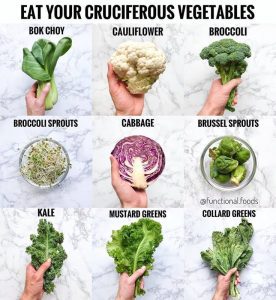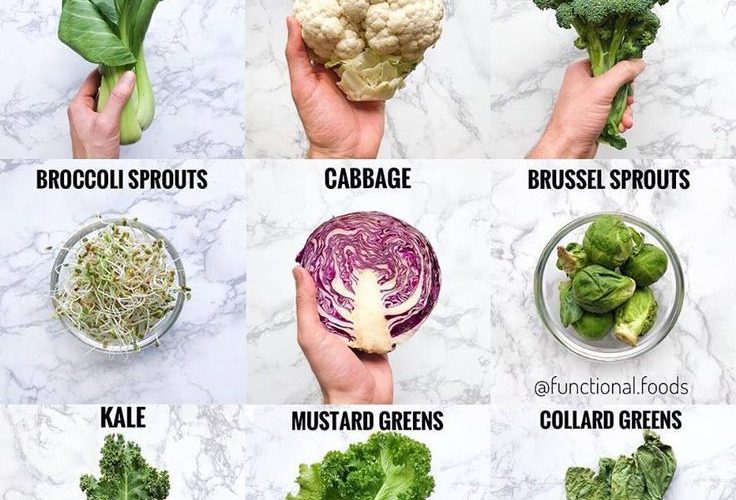Cruciferous vegetables, the unsung heroes of our plates, have a remarkable impact on our overall health. In this article, we will delve into the significance of cruciferous vegetables like broccoli, cauliflower, and Brussels sprouts and explore their rich nutrient profiles.
The Cruciferous Lineup
Nature’s Bounty
Cruciferous vegetables belong to the Brassicaceae family and include familiar favorites like:
- Broccoli: Known for its green florets, it’s a cruciferous gem packed with nutrients.
- Cauliflower: Its white, mild-flavored curds make it a versatile vegetable.
- Brussels Sprouts: Mini cabbages that are a delightful addition to any meal.
- Kale, Cabbage, and More: This family also includes kale, cabbage, arugula, and mustard greens, among others.

https://i.pinimg.com/736x/20/c1/ac/20c1acf0a9dfe8b9d1056cfc9df9e14c.jpg
Nutrient Profiles
A Wealth of Goodness
The nutrient profiles of cruciferous vegetables are truly impressive:
- Fiber: They are a great source of dietary fiber, which aids digestion and promotes a feeling of fullness.
- Vitamins: Rich in essential vitamins such as vitamin C, vitamin K, and various B vitamins, which support various bodily functions.
- Minerals: Cruciferous vegetables provide important minerals like potassium, calcium, and selenium.
- Phytonutrients: These veggies are packed with phytonutrients, such as sulforaphane and indole-3-carbinol, known for their antioxidant and anti-inflammatory properties.
- Glucosinolates: These natural compounds are a hallmark of cruciferous vegetables. They have been linked to cancer prevention and detoxification.
Health Benefits
The Impact on Well-Being
The nutrient richness of cruciferous vegetables contributes to numerous health benefits:
- Cancer Prevention: Research suggests that the compounds in cruciferous vegetables may help reduce the risk of certain types of cancer, including lung, breast, and colon cancer.
- Heart Health: The fiber, potassium, and antioxidant content in these vegetables support heart health by lowering blood pressure and reducing cholesterol levels.
- Digestive Health: Their fiber content aids in digestion and helps prevent constipation.
- Weight Management: The combination of fiber and low calorie content makes cruciferous vegetables a great choice for weight management.

Photo by SHVETS production: https://www.pexels.com/photo/woman-checking-weight-on-scales-in-studio-6975466/
Incorporating in Your Diet
Adding Cruciferous Veggies to Your Plate
Including more cruciferous vegetables in your diet is easier than you might think:
- Roasting: Roasted cauliflower or Brussels sprouts with a drizzle of olive oil and seasoning make for a tasty side dish.
- Steaming: Steamed broccoli or kale retains their nutrients and vibrant color.
- Salads: Shredded cabbage or kale can be added to your salads for extra crunch and nutrition.
- Soups and Stir-fries: Throw some chopped broccoli or cauliflower into your soups and stir-fries.
A Healthier You
Conclusion
Cruciferous vegetables are truly nutritional powerhouses that can significantly impact your overall health. Packed with essential nutrients and beneficial compounds, they play a vital role in cancer prevention, heart health, digestive well-being, and weight management.
Incorporate these veggies into your daily meals, and you’ll find that a healthier you is well within reach. With the abundance of goodness that cruciferous vegetables offer, you can savor the taste of well-being, one bite at a time.












